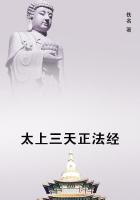Many eminent characters have been biblioklepts. When Innocent X. was still Monsignor Pamphilio, he stole a book--so says Tallemant des Reaux--from Du Monstier, the painter. The amusing thing is that Du Monstier himself was a book-thief. He used to tell how he had lifted a book, of which he had long been in search, from a stall on the Pont-Neuf; "but," says Tallemant (whom Janin does not seem to have consulted), "there are many people who don't think it thieving to steal a book unless you sell it afterwards." But Du Monstier took a less liberal view where his own books were concerned. The Cardinal Barberini came to Paris as legate, and brought in his suite Monsignor Pamphilio, who afterwards became Innocent X. The Cardinal paid a visit to Du Monstier in his studio, where Monsignor Pamphilio spied, on a table, "L'Histoire du Concile de Trent"--the good edition, the London one. "What a pity," thought the young ecclesiastic, "that such a man should be, by some accident, the possessor of so valuable a book." With these sentiments Monsignor Pamphilio slipped the work under his soutane. But little Du Monstier observed him, and said furiously to the Cardinal, that a holy man should not bring thieves and robbers in his company. With these words, and with others of a violent and libellous character, he recovered the "History of the Council of Trent," and kicked out the future Pope. Amelot de la Houssaie traces to this incident the hatred borne by Innocent X. to the Crown and the people of France.
Another Pope, while only a cardinal, stole a book from Menage--so M.
Janin reports--but we have not been able to discover Menage's own account of the larceny. The anecdotist is not so truthful that cardinals need flush a deeper scarlet, like the roses in Bion's "Lament for Adonis," on account of a scandal resting on the authority of Menage. Among Royal persons, Catherine de Medici, according to Brantome, was a biblioklept. "The Marshal Strozzi had a very fine library, and after his death the Queen-Mother seized it, promising some day to pay the value to his son, who never got a farthing of the money." The Ptolemies, too, were thieves on a large scale. A department of the Alexandrian Library was called "The Books from the Ships," and was filled with rare volumes stolen from passengers in vessels that touched at the port. True, the owners were given copies of their ancient MSS., but the exchange, as Aristotle says, was an "involuntary" one, and not distinct from robbery.
The great pattern of biblioklepts, a man who carried his passion to the most regrettable excesses, was a Spanish priest, Don Vincente, of the convent of Pobla, in Aragon. When the Spanish revolution despoiled the convent libraries, Don Vincente established himself at Barcelona, under the pillars of Los Encantes, where are the stalls of the merchants of bric-a-brac and the seats of them that sell books. In a gloomy den the Don stored up treasures which he hated to sell. Once he was present at an auction where he was out-bid in the competition for a rare, perhaps a unique, volume. Three nights after that, the people of Barcelona were awakened by cries of "Fire!" The house and shop of the man who had bought "Ordinacions per los gloriosos reys de Arago" were blazing. When the fire was extinguished, the body of the owner of the house was found, with a pipe in his blackened hand, and some money beside him. Every one said, "He must have set the house on fire with a spark from his pipe." Time went on, and week by week the police found the bodies of slain men, now in the street, now in a ditch, now in the river.















